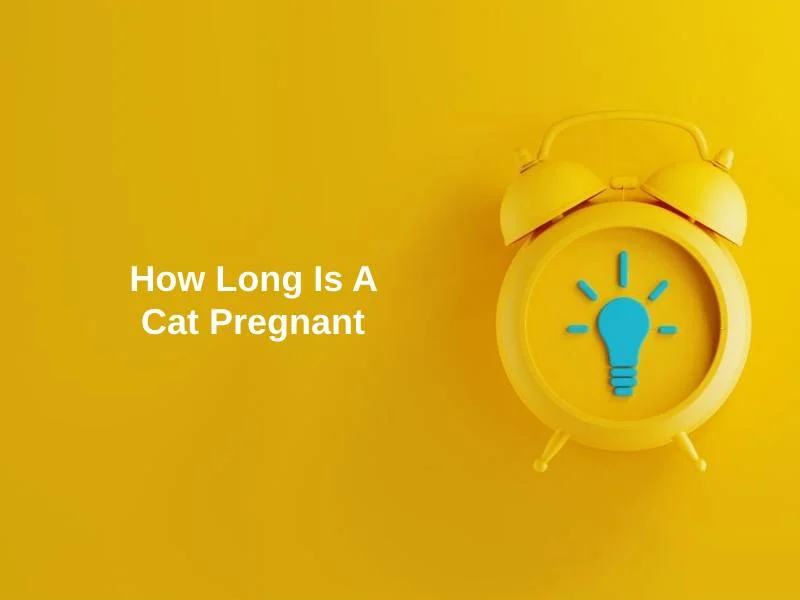Exact Answer: 58 to 72 Days
Cats are one of the most loved pets in the world. They are cute, fluffy, and adorable. If you are a cat parent, then you must be interested in knowing about the time that it takes for a cat to deliver the kittens.
The pregnancy of the female cats is known as queening. Once your baby cat is capable of giving birth, then you can officially call it a queen! When the queens are in the heat, and if it participates in a successful mating, then in two months or so, you can expect beautiful kittens.

How Long Is A Cat Pregnant?
You must be wondering about the exact duration of the cat pregnancy. The stipulated time ranges between 61 to 72 days. The most common time frame of pregnancy has been observed to be 63 to 65 days. Few queens may undergo premature delivery.
The biggest problem of cat pregnancy is to identify it in the early stage of pregnancy. The queen may feel nauseated. This may result in less eating of food. Usually, this phenomenon happens for the first two weeks. Queens may also undergo morning sickness.
Another symptom is that the heat cycle of the queen breaks down. There would be no more calls to attract the males for mating. In the third week, queens start eating more food than usual. The abdomen starts to swell up. The nipples of the queen swell, enlarge, and turn into reddish-pink color. By the end of the third week, one can easily identify cat pregnancy.
There are other more common symptoms of pregnancy. These symptoms include weight gain, frequent purring, more affection & love, increase in sleep time, and searching for a safe, secluded & quiet place for giving birth.
Queens demand constant attention and tend to be more affectionate than usual during their pregnancy. If you are a cat parent, then extra care must be taken of your beloved queen.
It is recommended by vets that the queen must be properly vaccinated to ensure that the kittens are born safe & healthy. Before giving birth to the kittens, the queen doesn’t eat food. As a cat parent, ensure that the queen has chosen the right place to give birth. Human intervention is not required during the birth of the kittens.
| Pregnancy Type | Days |
| Pre-mature | 58 to 62 Days |
| Normal | 63 to 67 Days |
| Post-term | 68 to 72 Days |
Why Is A Cat Pregnant For So Long?
Cat pregnancy can be divided into three major phases. The first two phases are about a month, while the third one is about a week or so. The first week of cat pregnancy involves two phases. In the first two weeks, nearly no symptoms can prove the pregnancy. These subtle changes are mostly behavioral. The next two weeks of this phase give hints about the pregnancy. Physical changes start to occur.
The second phase involves major physical changes. This phase is quite important as the maximum growth of the kittens happens in this phase. Queen starts eating more food. As a responsible cat parent, one should start feeding more nutritious food in this phase. In the first eight weeks of pregnancy, the kittens are fully grown.
The last phase is the pre-labor & labor phase. It can last up to a week or so. As a cat parent, you can start helping the queen to settle down in a quiet, cat-friendly, and safe place. The queen gives birth to the kittens with nearly no human intervention. There are minimal chances of complications in cat pregnancy.
It is found that larger animals have longer pregnancy periods. The reason for this nine-week pregnancy in cats is their relatively small size. Even dogs have more or less the same time frame of pregnancy. The nine-week duration is enough for the growth of 80 to 150 grams weighing newborn kittens.
Conclusion:
Cat pregnancy is considered to be a nine-week phenomenon. Queens undergo a lot of physical & behavioral changes during their pregnancy. If you are a cat parent, allowing your beloved furry friend pregnant is completely your decision.
The nine-week pregnancy is justified for cats due to their relatively small size. If you think there are any complications during the pregnancy period, then do visit a vet. Regular checkups are highly recommended.